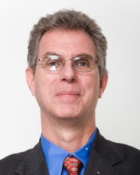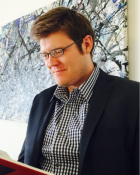
David Pettit

Jordan Wallace-Wolf
David Pettit ’72 is Senior Attorney at the Natural Resources Defense Council. Jordan is pursuing the joint JD/PhD in our Law and Philosophy Program. He has completed the JD and is currently writing a dissertation on privacy.
JW: Tell me a little bit about your background.
DP: I graduated in ‘72 from UCLA with a degree in philosophy and in ’75 from UCLA Law School. I’ve been a litigator my whole career. I’m now at the Natural Resources Defense Council, which is one of the big green environmental groups. I do litigation here, also some policy work, largely in the areas of air quality, climate change, environmental justice, the intersection of all of those.
JW: Is the defendant almost always a government regulator? Or do you have defendants who are corporations or persons?
DP: We do occasionally go after industry. Often, where we’ll sue a regulator, we’re basically in the business of law enforcement. When regulators don’t do their job, then we step in. Often, when you sue a regulator over some decision, the project proponent gets involved in the litigation. I have a case now involving a rail yard project near the Port of Los Angeles, and the actual defendant is the City of Los Angeles, but the railroad that wants to build the project is heavily involved in the litigation. We are suing under the California Environmental Quality Act, CEQA for short, and to file one of those, you have to name the real party in interest, which is always the project proponent.
JW: What is the nature of the project? The railroad that wants to build this yard, they're the proponents of the project?
DP: What it is, is what’s called an inter modal yard. Cargo comes in from China in big cargo containers, they’re 40-feet long, and they’ll be full of iPads or something. Many of those containers stay local, but about half of them go to the mid-west where they’re then distributed locally there. Those containers go by rail, rather than truck, which is something we support, because rail is more efficient in the emissions standpoint. Vastly more efficient.
But one of the issues is where you put the box onto the train. Ideally, in our view, that happens at the dock, where nobody lives. But, historically, there are a few near-dock rail yards. And this project is to add another one in an environmental justice community, which is a low-income community with predominantly people of color, near the Port of Los Angeles. What happens is, the box shows up on a boat, and it gets put onto a diesel truck, and that diesel truck takes the box four miles where it would then be put onto a diesel train. So, you’ve got diesel pollution at least two ways, one from the trucks, and one from the train. This project proposes to add two million truck trips per year to this local community. Our view is, build it on-dock where nobody lives, don’t put it in an environmental justice community.
JW: I want to ask you how philosophy plays a role in your job. Does it give you different skills and do they help you?
DP: One thing I got out of my philosophy department experience was the ability to rigorously analyze an argument and see, not only how the argument proceeds, but what premises it’s based on. And that skill I use every single day in my job. I read a brief from the other side and I may think, “This is totally wrong,” but I can’t write a responding brief that says “Hey, judge, this is totally wrong.” You have to explain why, and there’s a pretense in our legal system that things are based on fact and logical application of law. So, you write briefs in that sense. You say, “Well, here’s the applicable law, here’s how it applies to the facts in front of us, and here’s why our opponent’s brief is incorrect.”
JW: What did you find interesting in your time as an undergraduate at UCLA and what you recommend to undergraduates to get the most out of what UCLA?
DP: I was most interested in mathematical logic, and theory of language, theory of science, philosophy of science, philosophy of language, and I did take a class from Alonzo Church which was pretty scary. I had several majors before I wound up in philosophy, and, I guess my advice would be figure out what you like and then go for it hard. I took graduate classes while I was still an undergrad.
JW: How would you advise someone who's trying to decide whether they would be interested in law school? And a second question: if someone does determine they are interested in law school, how would you recommend they prepare to succeed at it?
DP: I thought that the level of intellectual rigor in law school was a joke compared to the work I’d been doing in undergraduate. I was taking graduate courses in set theory and the like, and it took me a while to really figure out that law school was a professional school, and they were teaching you a trade. So, I think you need to adjust your expectation from some grand, intellectual adventure, to learning how to do the job. Which I think is what law school is really about.
JW: Do you have any advice that you'd like to share about how to find an interesting career and grow in it?
DP: I was lucky enough, at UCLA, to get into the clinical programs where I was going to court with real cases in my second year, and the first time I did that, I loved it. I’ve always been a competitive guy, I played a lot of basketball when I was younger, and law is competitive. It’s intellectual, instead of banging people around under the hoop, but to me it’s the same kind of thing. And the first time I went to court, I thought, “This is it, this is what I want to do.” I feel comfortable in court, I’m good with conflict in chaos, I just like it.



